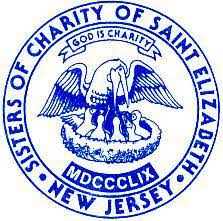“Living the Mission”
Over the past few months, I’ve talked with many people who have already been laid off, or “furloughed,” and others who live in fear that they will soon receive a pink slip, throwing their lives into sickening uncertainty. Although it was a long time ago, I still remember the gripping fear of unemployment, the false but haunting sense of failure, and deepening gloom.
In the fall of 1991, I was unemployed. Not long before, I had moved out of my parents’ house and rented a tiny apartment in Bayonne. It felt like I had just stepped into adulthood, but now it looked like I might have to retrace my steps and move back into my childhood bedroom. At first, I was reasonably confident that I would find work, but the months ticked by, and nothing turned up. Finally, early in the new year, and with almost no money left in the bank, I interviewed for a teaching job at St. Vincent Academy in Newark, an all-girls high school sponsored by the Sisters of Charity.
I’m not sure if my desperation showed, but I was hired. My new job helped me keep my apartment, and it also provided me a perfect place to develop as a teacher and as a human being. I’ve said many times that I “grew up” at SVA. I learned from my students and colleagues, especially the sisters and other women who, while so many had fled Newark, devoted their whole lives to the school. I only stayed for about six years before returning to my alma mater, St. Peter’s Prep. But, although I’ve been gone from SVA for a long time, I’ve always felt indebted to the Sisters of Charity and wondered if there might be a way to pay them back somehow.
About a year ago, an SVA colleague and friend, Sister Noreen Neary, got in touch with me, asking if I might consider joining the Seton Ministries Board of Trustees. Sister Noreen explained that the board is responsible for governing, supporting, and advocating for the sponsored ministries of the Sisters of Charity, including schools like SVA, hospitals, and other good works. I didn’t feel particularly well qualified for the position (and, I suppose it’s an unlikely post for an Episcopal priest), but I trusted Sister Noreen’s judgment. And, I thought, at last, this might be an opportunity to finally “pay back” a long-ago act of kindness that changed the course of my life.
I was recently appointed as the liaison from Seton Ministries to St. Elizabeth University (known until recently as The College of St. Elizabeth) in Morristown. To begin this work, I spent Monday morning getting a tour of the campus from a happy, proud, and enthusiastic student, and meeting with many of the administrators, including the university’s president. There was a whole lot of information to absorb, and I still have much to learn, but a thread ran through each conversation: everyone had a clear understanding of the university’s mission. Each person expressed the mission in somewhat different ways, but they all understood it, and they all saw their work as contributing to the mission.
From my student tour guide to the president, each person described a university that stands in solidarity with the poor and is committed to serve the community. Each person told me that they aim to send out graduates to be leaders who serve others. Each administrator recognized the privilege of guiding and teaching students who are often the first in their families to go to college.
It was clear that these good and dedicated people are living the mission.
It reminds me so much of St. Vincent Academy, where some sisters and other teachers and administrators have lived the mission for many decades. And, it reminds me of St. Peter’s Prep, where, even more than in the days when I was a student, every teacher, administrator, and student understands the school’s mission to form young men of “competence, conscience, and compassion.” Of course, like all institutions, these schools face their share of challenges, but I do not doubt that their longevity and continued success rest on having a clear mission - and living that mission, with God’s help.
The church has much to learn (or, remember) about mission. Maybe this is surprising for an institution that is so old. Still, too often our mission has been simply to continue doing what we’ve been doing, to figure out how to keep the doors open (or, these days, keep the services live-streamed) for another week, to care for our members - and, on the side, if there’s time, energy, and money left over, to do some good in the community. These are all worthwhile tasks, but probably not inspiring enough to draw the same kind of commitment that I’ve encountered at SVA, Prep, and SEU – institutions where people know the mission, and are devoted to living the mission.
There’s so much going on right now, and plenty to worry about, very much including unemployment. But, since the pandemic has prevented us from doing much of what we usually do, maybe this is an especially good time to think more deeply about the church’s mission. Why are we here? What is God calling us to do with the gifts that we have been given? What kind of mission would excite us? What would inspire other people, especially young people, who are desperately looking for hope and light in this grim and shadowy time? Imagine if our church settled on a mission so clear and compelling that we would all know it in our bones and easily describe it to others. Imagine a mission that other people could see in who and what we are. And, most important of all, imagine if we were all living the mission!




